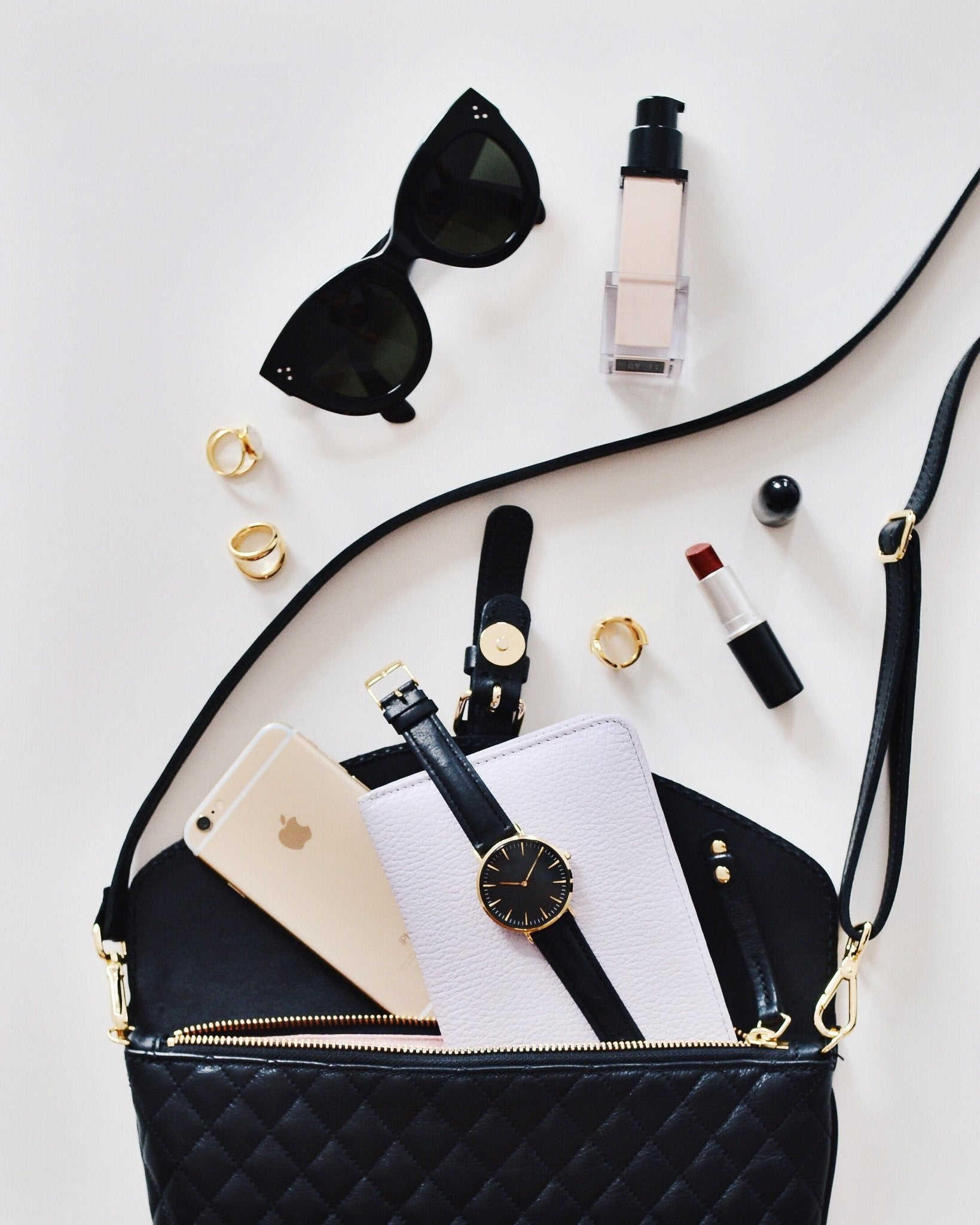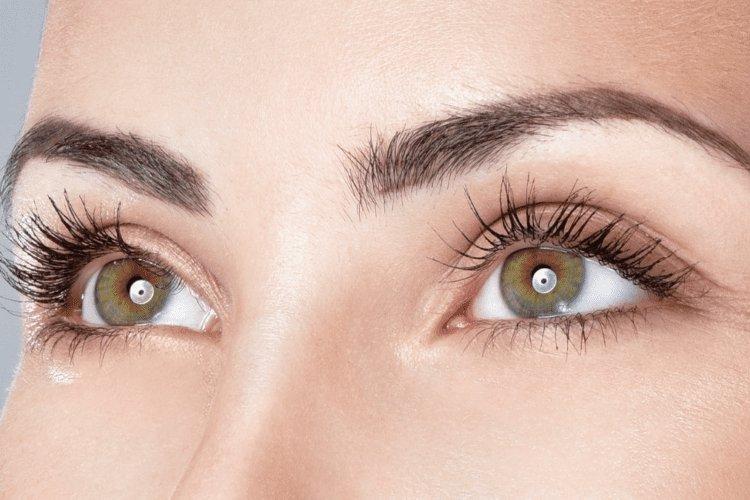Hijab has been a part of discussions for a long time. This unique piece of clothing is common among Muslim women. They wear it to cover themselves in the light of their religious teachings. The unique style, fashion statement, and multiple benefits of this item are popular even among non-Muslims.
Apparently, Muslim women carry hijabs as per religious directions. It is not enforced but rather opted on will by Muslim women who choose to wear it. As it is regarded as a matter of choice, there are plenty of different reasons why they prefer to wear it. One of them is feeling empowered.
Before diving into the details of how wearing a hijab makes women feel empowered, let’s have a look at some of the different types of hijabs Muslim women wear.

Different Types of Hijabs
Muslim women use different types of hijab according to their convenience, culture, and choice. In different parts of the world, women observe various traditions and wear veils accordingly. For instance, the Burqa is often carried by women in Afghanistan. Meanwhile, Niqab is done in Middle Eastern countries and so on.
Following are the different kinds of veils Muslim women wear.
Hijab
The most famous one is the Hijab itself. It can be one or two scarves to cover the head and neck. In Iran, it is in their law to wear Hijab. Meanwhile, it is also worn in the west for different purposes. Women in countries like Pakistan and Afghanistan also carry it as a part of their regular dress code.
Burqa
It is a veil that covers the whole body. It comes in different styles and women wear it as per their choice. In Afghanistan, women wear a burqa that covers their bodies from head to toe with a mesh screen to help them see. Another common type of burqa is a long gown with a scarf or hijab.
Niqab
This style of veil is famous in Gulf countries. It covers half of the face, except the eyes. Niqab also covers your remaining body, including the head.
Chador
It is a full-body shawl, held closed by the neck or by pins. It does not cover the face but the whole body. Primarily black, they are worn mainly in Iran.
Common Reasons for Wearing Hijab
As discussed earlier, the hijab is a matter of choice and personal preference. Besides its religious importance, Muslims wear it for various reasons. Here are some of the common reasons among them.

Many Muslim women wear hijab and adopt it as an integral part of their everyday look because it makes them feel empowered. The sense of liberation, high self-esteem, and unique identification all contribute to making them feel their worth.
6 Reasons for Women Feeling Empowered for Wearing Hijab
Majorly, women opt to wear hijab for Allah’s sake and experience empowerment. Below are the main reasons why wearing a hijab leads them to feel so.

Celebrate a Sense of Individuality
Clothing is a matter of personal preference. It expresses their personality and allows people to feel the best of themselves. Like any other piece of clothing, when Muslim women wear the hijab, it provides them with a sense of individuality.
It fills them with the confidence of having a distinctive recognition. They prefer to be recognized for their religion and culture, which makes them unique from others. Many women describe this experience as boosting their confidence.
Signifies Freedom of Dressing
Every individual has the right to dress according to their wish. Unfortunately, in many countries, Muslim women are not allowed to wear hijab. Due to this, women who carry it find it an expression of their freedom of expression. This signifies that they can wear whatever they want and find suitable.
Freedom of dressing is a key indicator of empowerment. Women must be allowed to carry the look they like, whether it includes a hijab or not. They must feel the confidence from within, which can then be expressed through their personalities. It gives them a feeling of self-assurance that they are free to flaunt their choices.
Looks Stylish
Looking good and feeling beautiful is the right of every human. Human nature loves beauty, and they feel the need to look presentable, among others. This is completely natural, and there is nothing wrong with it. One thing Muslim women love about their hijabs is that they help them make a statement with their style.
Hijabs are available in various types of clothes, vibrant colors, and attractive prints. Not only do they look good, but you can also style them beautifully. This is why women carry it confidently in their everyday, office, party, and wedding looks.
Breaking Stereotypes against Women
In many societies, women are objectified and limited to a certain look. They often face questions and objections regarding their attire. They easily become a target of hate and violence based on their clothing choice. Unfortunately, women face stereotypes about their religious headwear and clothing.
In such a situation, the hijab distinguishes Muslim women from others by eliminating the stigma associated with a specific look defining them. It symbolizes that women deserve the utmost respect and grace irrespective of what they are wearing. Women feel a sense of pride as they represent the women of the whole world when they come out in society, flaunting their looks.
Appreciation for Personal Traits and Talents
A commonly, rather excessively used statement that the first impression is the last impression has made things quite complicated. The interpretation of this statement compels people to focus on external beauty so much that internal beauty is usually ignored. Hijab discourages this idea and draws attention toward the more important standards of appreciating each other.
It does not restrict your external beauty but urges others to learn about your talents, achievements, and successes. Due to this, women get a chance to demonstrate their skills without the biases of being judged on looks. It provides them with a fair ground for healthy competition in every field.
Sense of Solidarity
Many wear it to experience a sense of solidarity with other Muslim women. It reminds them that they have a supportive community not only in their country but all around the world. When they wear hijab, it becomes a symbol for representing their association with their community and a source of respecting their beliefs.
This is an amazing feeling that fills you with strength. It also motivates you to think of your responsibility as a Muslim woman to play a positive role in women’s empowerment. It also urges you to identify your strengths and become a source of inspiration for other women in the world.
Other Benefits of Hijab
Besides providing a sense of empowerment, there are various other benefits associated with wearing a hijab. Let's dive into the details of the benefits that make carrying a hijab worth it.

Protection
In today's world, the explicitly has spread far and wide. Despite people being moderate about not objectifying women, they still blame their temptations on women's clothes. An increase in the rate of rape is a valid argument for that.
So, to avoid such claims, a woman wears a hijab. It is said that women are less likely to get unpleasant gazes when they cover themselves properly.
Purity Symbol
It illuminates the innocence of the women who wear it. It signifies that she focuses more on purifying herself from within rather than the outer beauty. It is also considered as a symbol of religious association. For some, it also symbolises simplicity and plain living.
Hijab for Hygiene
You can wear a hijab to ensure cleanliness and purity. Nurses, fast food workers, deli counter employees, restaurant workers and servers, doctors, health care providers, and many others wear veils/masks or caps so that they can stay away from germs and maintain their self-hygiene.
Health Benefits
A hijab or a head covering acts as a shield to fight extreme weather conditions. It prevents the loss of excessive heat from the body during winters. As per medical studies, much of the heat in the body is lost through the head. The hijab becomes a barrier to heat loss and protects your body from catching a cold.
Similarly, during summers, it blocks the penetration of heat in the body through your head. This prevents direct sunlight from affecting your face, hair, and body. It also keeps dirt and pollution from harming your hair.
Eliminates Self-Glorification
There remains an unfair competition, especially among women, to look good and feel proud of it. There is nothing wrong with it; everyone has the right to adopt the look they adore. Excessive self-glorification based on weak foundations such as appearance can lead to arrogance and narcissism.
Hijab tends to eliminate such vague and temporary honor. It reshapes the common idea of beauty that revolves around physical appearance. It promotes the idea of preferring and appreciating each other for their skills, talent, and traits.
Debunking Common Misconceptions
Unfortunately, there are several misconceptions associated with hijabi women or hijabs in general. This makes it seem like a taboo for some and confusing to others. Have a look at some common misconceptions prevalent in society and their reality.
Hijab is Oppressive
A common misconception among people is that hijab or Islamic clothing is oppressive to women. It lowers their self-confidence and binds them to follow directions. Some even think of it as limiting their fundamental rights. Contrary to this, women actually adopting it on their will state a different story. They describe their experience of adopting this style as empowering and strengthening.
Only Muslim Women Can Wear Hijab
Another common misconception is that hijab is only for Muslim women. It is right that Islam advises Muslim women to wear it, but there is no restriction. Any women who want to adopt it can do so irrespective of their religion, culture, race, or nationality. Many non-Muslim women wear it and find it comfortable themselves.
Hijab Hurdles Women’s Progress
In addition, a baseless misconception about the hijab and hijabi women is that it confines them to their homes. They are not allowed to choose a profession of their choice and strive for self-development. This is completely wrong as there are plenty of Muslim women around the world who wear hijab and enjoy a successful professional life. It includes successful doctors, surgeons, sportswomen, business women, and scientists.
Conclusion
Hijab is a sign of beauty, protection, and modesty for Muslim women. There are multiple benefits of carrying a hijab. These compelling benefits have made it quite popular in the world. Now, non-Muslim women also wear it to maintain high hygiene and to avoid show-off. Most importantly, it helps women feel a sense of empowerment that triggers their growth and development.
We hope this article provides fine information on why do Muslim women feel empowered for wearing the hijab.
FAQs
What is a Hijab?
Hijab is an Arabic word that means veil in English. It refers to the one particular veil that consists of scarves Muslim women wear. Women use it to cover their heads and neck. It is considered a symbol of modesty.
Is it Obligatory to wear Hijab?
Yes, it is an obligation. Muslim women have to wear a veil to do pardah, as it is mentioned in the Quran. Not necessarily Hijab, but a veil of any kind. They can wear burqas, niqabs, etc.
Is Hijab by Choice?
Most women wear it by choice, not by any force. Some people think the hijab is done by the enforcement of parents. But Muslim and non-Muslim women wear Hijab because of their choice.
What does a hijab symbolize?
A hijab symbolizes purity, modesty, and privacy. When a Muslim woman wears a hijab it means that they are ensuring their privacy and seeking modesty. It relates to the purity of thoughts and actions.
Can Hijab be considered an Act of Submission to Men?
No, it is not an act of submission to men. Instead, in Islam, carrying hijab means submission to God. It embodies that women have the authority to wear what they want. It has nothing to do with seeking validation from others.





Leave a comment
This site is protected by hCaptcha and the hCaptcha Privacy Policy and Terms of Service apply.